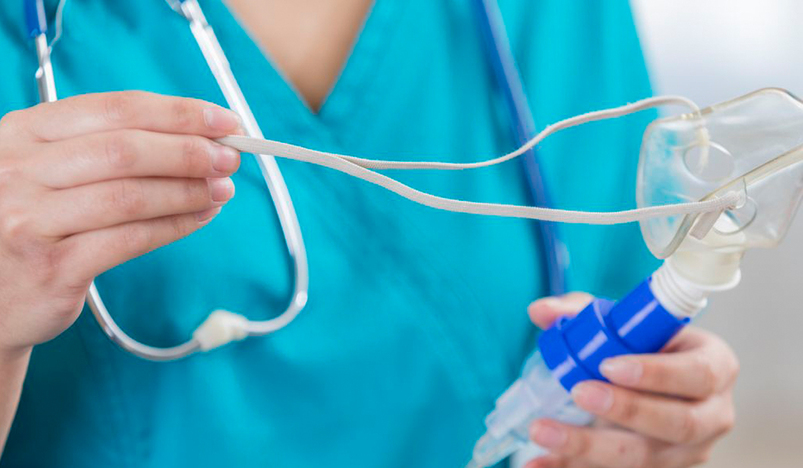
COVID
Inhaled monoclonal antibodies against SARS-CoV-2 significantly reduced COVID-19 disease in nonhuman primates, finds research that will enable another at-home treatment option for flu and other respiratory illnesses to become a reality.
Monoclonal antibodies can help to clear invading pathogens like viruses before the body's natural immune responses, including antibodies, have time to develop.
During much of the global pandemic, monoclonal antibodies were an important treatment option for people with COVID-19. But this treatment has only been available through an intravenous infusion that has to be administered at a hospital or clinic.
Infusion treatments must first travel through the bloodstream before arriving at the specific site of a particular infection -- primarily the lungs with Covid-19. Such a delay means the treatment isn't able to immediately battle a virus, and an infection can worsen. Inhalable treatments can arrive at the lungs within seconds and get to work more quickly.
Previous research in mice has shown that aerosolised monoclonal antibodies can protect against SARS-CoV-2, it is the first that the therapy has been tested with live virus in nonhuman primates.
The study, published in the journal Nature Communications, showed the amount of infectious SARS-CoV-2 in the lungs of rhesus macaques that breathed in aerosolised antibodies was up to 10,000 times less than control animals that were given control antibodies.
"The effect of the inhaled antibodies in our study was striking," said Nancy Haigwood, Professor at Oregon Health & Science University in the US.
"The aerosolised monoclonal antibodies we evaluated were remarkably effective in protecting against lung damage. This gives me hope that one day we might be able to buy a monoclonal antibody nebulizer at the pharmacy to treat and even prevent respiratory illnesses like the flu," she added.
For this study, the research team collaborated with several groups to identify and procure human monoclonal antibodies that target different parts of the spike protein on the delta variant of SARS-CoV-2, which was a dominant COVID-19 strain at that time.
To deliver those antibodies, they used a nebulizer -- which mixes liquid medication with air to create a fine mist -- from medical device manufacturer PARI that is designed to create droplets that can reach the lower lungs.
The research team found the amount of SARS-CoV-2 RNA in the lungs and nasal swabs was quickly reduced 1,000-fold in nonhuman primates that received aerosolised SARS-CoV-2 monoclonal antibodies either before being exposed to the delta strain of the virus or both before and after viral exposure.
Infectious virus was significantly lower than control animals that received an aerosolised human monoclonal directed to respiratory syncytial virus, or RSV. However, when animals only received the aerosol therapy after being exposed, the benefit was less pronounced.
The team now plan to determine if they can further improve the delivery of aerosolised monoclonal antibodies to nonhuman primates.
.jpg)
Qatar Secures Place Among the World's Top 10 Wealthiest Nations
.jpg)
Hamad International Airport Witnesses Record Increase in Passenger Traffic

Saudi Arabia: Any visa holder can now perform Umrah

What are Qatar's Labour Laws on Annual Leave?
Leave a comment